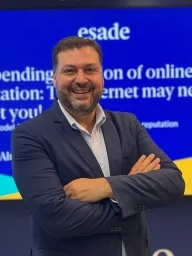ESADE participates in the SCALINGS project to analyze co-creation processes in robotics and energy
Co-creation –including users or external researchers in an innovation process- has been shown as a useful alternative to innovation in disruptive sectors such as robotics, but there are still no experiences to apply it on a large scale. The European project Scalings, in which ESADE participates, will analyze co-creation processes in 10 European countries to learn the keys to their success and export them to the rest of Europe.
During the next three years the Technical University of Munich will lead a study to identify how co-creation processes work under different socio-cultural conditions, that is, if the "good practices" that have been effective in one place will work in others countries or if the resulting products and services can be exported to new markets.
ESADE, the only Spanish institution that will participate in the project, will analyze the co-creation processes taking place in Barcelona under the umbrella of ECHORD ++, a European platform in which the Universitat Politècnica de Catalunya (UPC) participates and which seeks to facilitate dialogue between manufacturers of robots, public organizations, researchers and users.
ESADE researcher Kyriaki Papageorgiou will be responsible for analyzing these experiences, specifically those that have implemented the Public end-user Driven Technological Innovation (PDTI) methodology, an innovative co-creation method developed in Barcelona that facilitates cooperation between public and private organizations. This system has allowed the creation of robots tailored to the needs of public administrations, with successful experiences such as several drones and robots for the inspection of the sewer system in Barcelona.
The project, which will focus on analyzing experiences in the fields of robotics, autonomous cars and energy, has received four million euros of European funding from the Horizon 2020 program promoted by the European Commission, of which ESADE will receive 269,000 euros.
The first consortium meeting to develop the project was held in Munich, complemented with a conference in which experts from all over Europe debated the best way to involve society in the innovation and research processes that are being developed in the continent.





